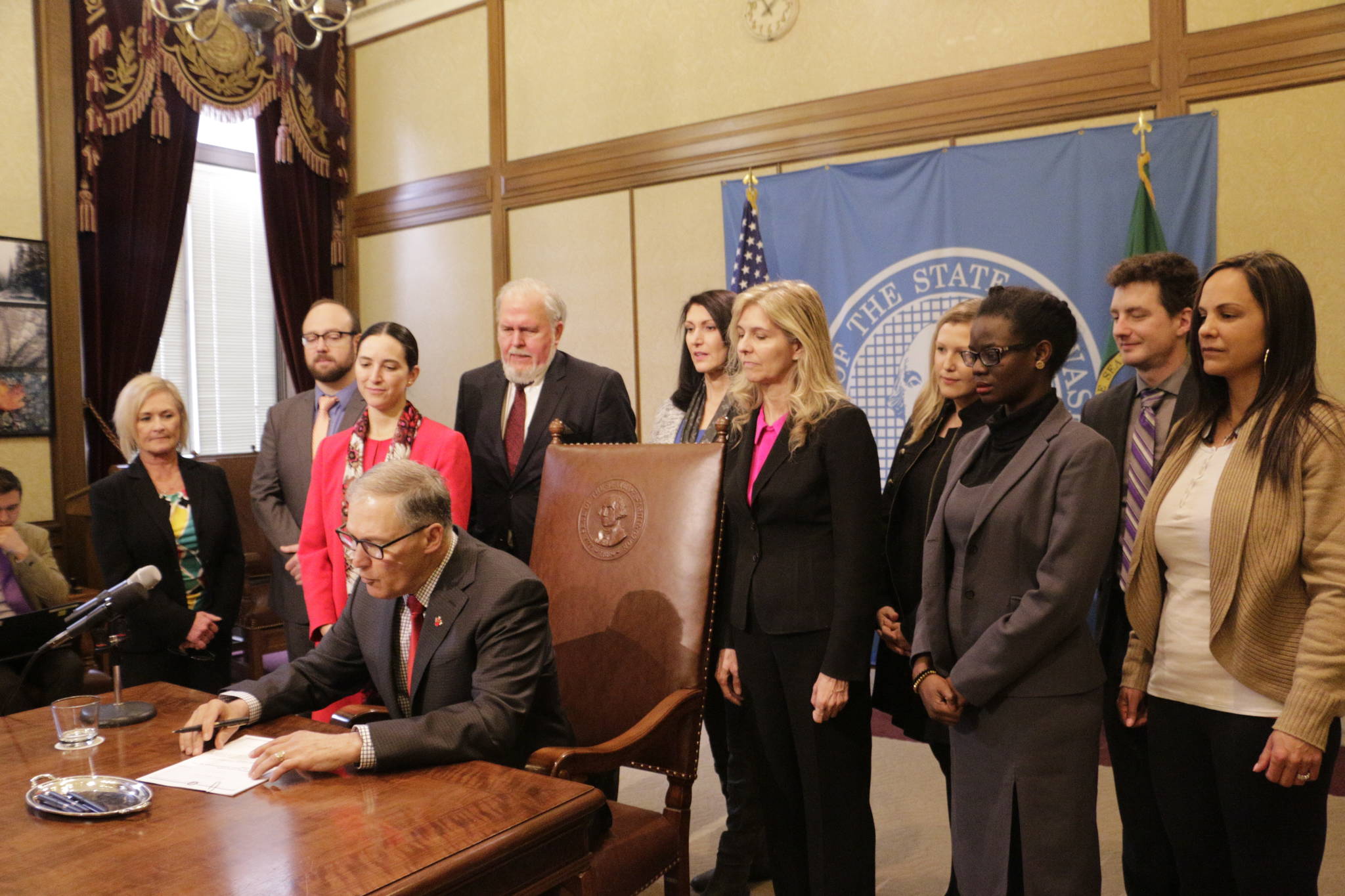By Alexis Myers
The Associated Press
OLYMPIA — A bill that would allow victims of sex trafficking to clear a prostitution conviction even if they’ve committed other crimes as a result of being trafficked was signed Tuesday by Gov. Jay Inslee.
“This is important in our fight against human trafficking because it removes a significant barrier to leaving prostitution,” Inslee said at the bill signing ceremony.
Current law doesn’t allow victims to vacate prostitution convictions if other crimes exist on their criminal record.
The new measure states any motion filed to vacate a prostitution conviction must prove “by a preponderance of the evidence” that the applicant’s conviction, along with any other crimes committed, was a result of being a “victim of trafficking, promoting prostitution in the first degree or promoting commercial sexual abuse of a minor.”
The new statute would apply to minors and adults who received convictions in Washington state.
Democratic Sen. Rebecca Saldana of Seattle, the bill’s sponsor, said she hopes the legislation will clarify and simplify the process so survivors can file suit and are able to access housing, education and job opportunities without being held back by a prostitution conviction and the stigmatism that comes with it.
“They made it through and overcame such difficult hurdles only to be retriggered and to find doors close on them,” she said, pointing out the flaws in the previous law. “The hurdles were so high that not a single person had been able to access what was supposedly their right.”
Valiant Richey, a King County senior deputy prosecuting attorney, says the legislation is a good start.
“Rarely does a single piece of legislation fix all problems,” he said. “However, this is a really positive step in the right direction of understanding where the responsibility for exploitation lies.”
Richey said “johns” are responsible for sexually exploiting and trafficking men, women and children and have become the justice system’s main priority.
He pointed out the number of people caught patronizing a prostitute in King County has nearly doubled since 2009, whereas the number of prostitution convictions has reduced to about a fifth of what they were several years ago.
At least 27 states have created procedures for survivors to expunge, vacate or seal criminal records related to being trafficked, according to the National Conference of State Legislatures.
During the legislative session, lawmakers pushed to allow victims to submit an affidavit to avoid the courtroom, but the final version states any motion to clear a conviction must be “supported by the sworn testimony of the applicant at a hearing before the court.”
Robert Beiser, the executive director of Seattle Against Slavery, a coalition that fights against labor and sex trafficking, said it’s difficult to say how many people would benefit from the legislation because trafficking is such a hidden crime.
But he said hundreds of people every year receive services related to prostitution and trafficking.
“This will help people move on with their lives and not let their trafficking situation hold them back from getting back to their lives, safety and freedom,” Beiser said.
